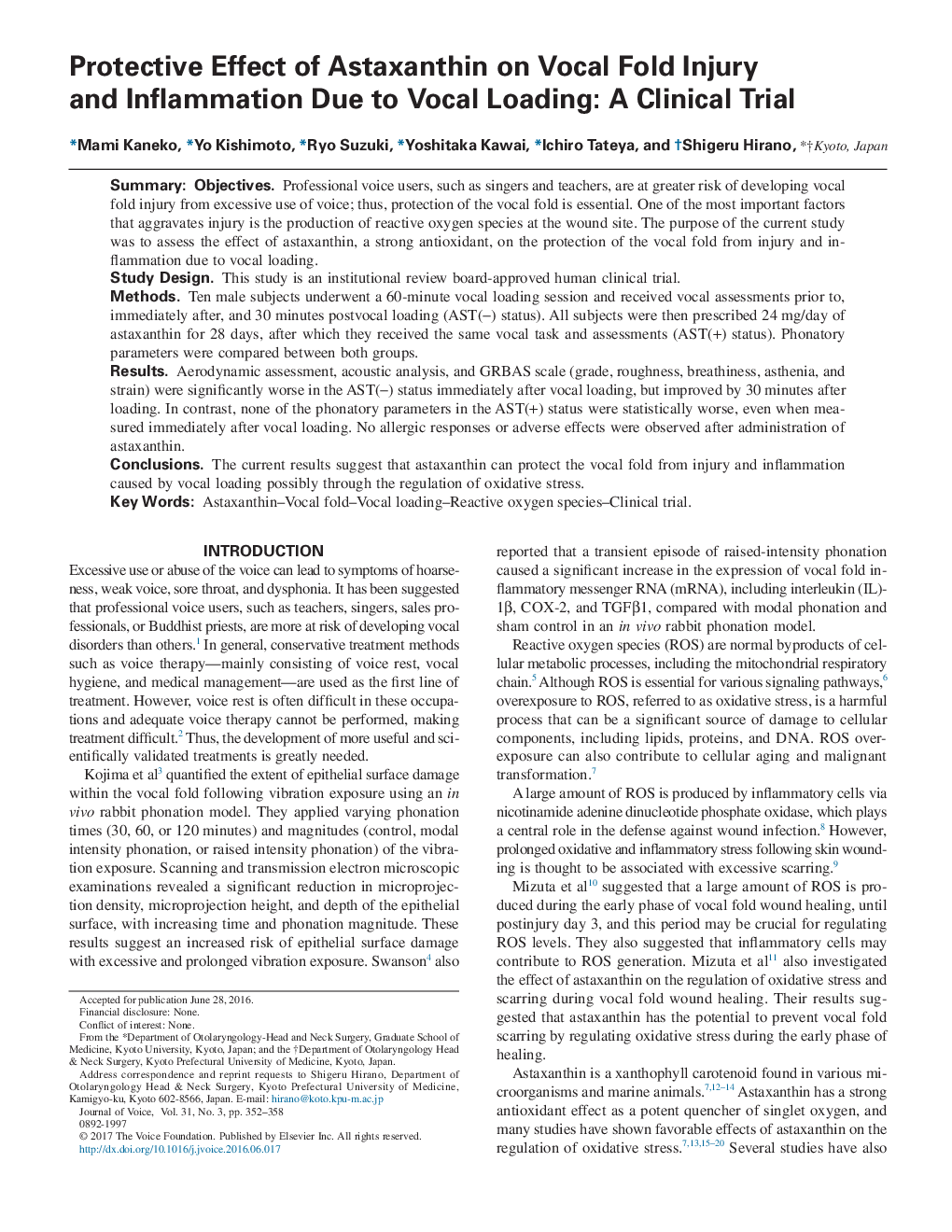| Article ID | Journal | Published Year | Pages | File Type |
|---|---|---|---|---|
| 5124239 | Journal of Voice | 2017 | 7 Pages |
SummaryObjectivesProfessional voice users, such as singers and teachers, are at greater risk of developing vocal fold injury from excessive use of voice; thus, protection of the vocal fold is essential. One of the most important factors that aggravates injury is the production of reactive oxygen species at the wound site. The purpose of the current study was to assess the effect of astaxanthin, a strong antioxidant, on the protection of the vocal fold from injury and inflammation due to vocal loading.Study DesignThis study is an institutional review board-approved human clinical trial.MethodsTen male subjects underwent a 60-minute vocal loading session and received vocal assessments prior to, immediately after, and 30 minutes postvocal loading (AST(â) status). All subjects were then prescribed 24âmg/day of astaxanthin for 28 days, after which they received the same vocal task and assessments (AST(+) status). Phonatory parameters were compared between both groups.ResultsAerodynamic assessment, acoustic analysis, and GRBAS scale (grade, roughness, breathiness, asthenia, and strain) were significantly worse in the AST(â) status immediately after vocal loading, but improved by 30 minutes after loading. In contrast, none of the phonatory parameters in the AST(+) status were statistically worse, even when measured immediately after vocal loading. No allergic responses or adverse effects were observed after administration of astaxanthin.ConclusionsThe current results suggest that astaxanthin can protect the vocal fold from injury and inflammation caused by vocal loading possibly through the regulation of oxidative stress.
